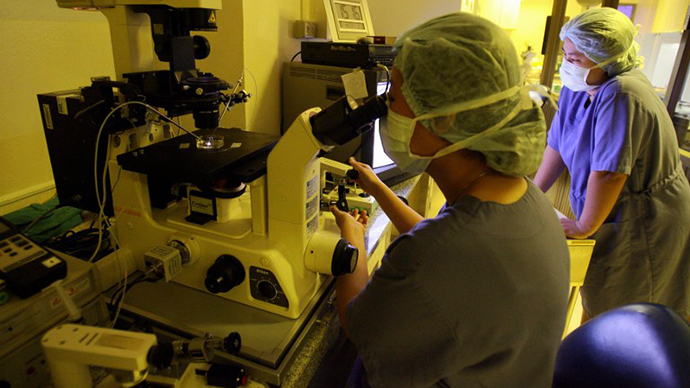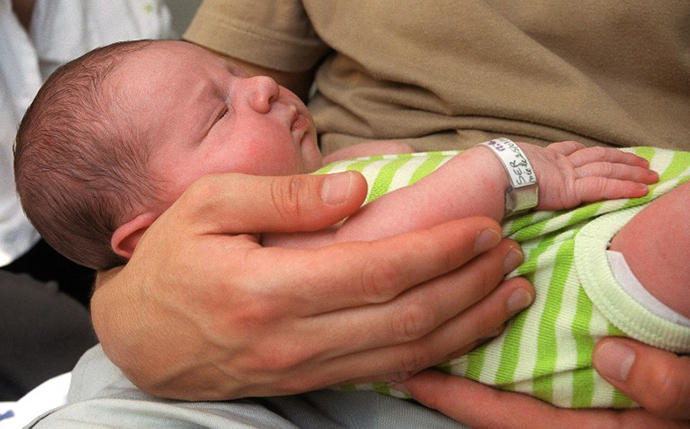UK ready to approve 3-person fertilization method

The UK is set to approve an artificial fertility treatment that will allow the creation of human embryos using genetic material from three parents in a bid to prevent specific birth defects. Opponents say it could lead to a “designer baby” market.
In vitro fertilization (or IVF) is already a widely adopted
method that allows parents dealing with infertility to conceive
by artificially fertilizing a mother’s egg outside of her body.
Assisted reproductive technology of this type has increased its
success rate in the last few years, with the US pregnancy rate
for IVF in 2009 reported at 47.6% for women under 35, and similar
success rates reported in countries including Canada, France and
the UK.
Now, a new technique for three-person IVF is likely to be offered
in the UK in as little as two years, once draft regulations are
drawn up. The inclusion of a third individual, in this case by
using a donor egg, could lead to the elimination of fatal
mitochondrial diseases, which are thought to affect one in every
6,500 babies in the UK and about 1 in 4,000 in the US.
Mitochondria, often thought of as the “power house” of the human cell, are
small, pill-like structures that convert glucose into energy for
the human body, and also carry a small percentage of genetic
material passed on to offspring.
Defective mitochondria passed on to children can result in muscle
weakness, blindness, heart failure and death in the most severe
cases. Research also indicates that mitochondrial defects can
also lead to diabetes, deafness, Parkinson’s disease and even
obesity later in life.
By using a donor egg to transfer genetic material from the
mother, scientists believe an embryo with healthy mitochondria
can be produced, though it also introduces the additional genetic
material of a third individual into the human embryo - an ethical
concern for some.

Criticism of the new technique is based on both the fact that
scientists will begin altering human genetic inheritance, as well
as the potential for creating a eugenic “designer baby” market,
where parents could pick and choose genetic traits.
The UK’s fertility watchdog, the Human Fertilisation and
Embryology Authority (HFEA), has cleared the way for the
mitochondria replacement procedure. Robin Lovell-Badge, a member
of the committee that produced HFEA's safety reports, told Wired
UK that criticism of the three-person IVF was baseless.
"The fears expressed by some
opponents of the techniques, such as that they will lead
'inexorably to the disaster of genetically engineered babies and
consumer eugenics,' have no grounding at all," says
Lovell-Badge.
"The methods to achieve the
latter are very different, we found no evidence that the public
would show any support for these dubious (and currently
unachievable) aims, and the distinction between both the aims and
the methods required makes it very easy to have regulations and
laws against their use."
Sharon Bernardi, a British mother who lost all seven of her
children to mitochondrial disease, became the subject of a widely
publicized story in UK in 2012. Six of Bernardi’s children died
before the age of two, four within hours of birth, while her
longest-living son, Edward, died last year at the age of 21 after
suffering from severe seizures despite blood transfusions and
medical care.
Supporters of the new technique agree that IVF involving three
individuals marks a new level of human genetic modification,
though the HFEA has concluded that there is “general support” for the idea, and
that there was no evidence that the advanced form of IVF is
unsafe.
Draft regulations in the UK will be prepared this year, and a
final version is expected to be up for debate and a vote in
parliament in 2014.














